In Basel, Switzerland, Calvin brought out the first edition of his Institutes of the Christian Religion in 1536, the first systematic, theological treatise of the new reform movement. Calvin agreed with Luther’s teaching on justification by faith. However, he found a more positive place for law within the Christian community than did Luther.
In Geneva, Calvin was able to experiment with his ideal of a disciplined community of the elect. Calvin also stressed the doctrine of predestination and interpreted Holy Communion as a spiritual partaking of the body and blood of Christ. Calvin’s tradition merged eventually with Zwingli’s into the Reformed tradition, which was given theological expression by the (second) Helvetic Confession of 1561
Literal reading of the Bible which had developed in the 17th Century took off in the 19th and restorationism gained political power through Lord Shaftesbury. His political influence came through Lord Palmerston. Shaftesbury’s wife was probably Palmerston’s daughter, he was certainly her stepfather. Shaftesbury placed an advert in the Times in 1840 proposing a return of the Jews to Palestine, sent a memorandum round to the Protestant monarchs of Europe and moved to get a British Consul and Bishop installed in Jerusalem. But Shaftesbury was not alone, he was just the politically best connected.
Anthony Ashley Cooper, Earl of Shaftesbury was an Evangelical Christian, part of the revival of Evangelical faith that swept Britain in the early 19th century. Religious motives prompted him to initiate charity works and further social legislation, including the ten hour day act. At the same time, he was keen for the restoration of the Jews, and their conversion to Christianity.
Lord Shaftesbury was the most active restoration lobbyist. 'The inherent vitality,' he wrote, 'of the Hebrew race reasserts itself with amazing persistence. Its genius, to tell the truth, adapts itself more or less to all the currents of civilization all over the world, nevertheless always emerging with distinctive features and a gallant recovery of vigor."
Shaftesbury told his biographer, Edwin Hodder, that belief in the Second Advent, "has always been a moving principle in my life, for I see everything going on on in the world subordinate to this great even." Privately, he asked, "Why do we not pray for it every time we hear a clock string?" Hodder stated that since the return of the Jews was required for the Second Advent, Shaftesbury "never had a shadow of a doubt that the Jews were to return to their own land...It was his daily prayer, his daily hope. 'Oh pray for the peace of Jerusalem!' were the words engraven on the ring he always wore on his right hand.' (Tuchman, Bible and Sword p 178).
Lord Shaftesbury lobbied for the idea of return of the Jews with Prime Minister Palmerston and his successors in the government and was incidentally instrumental in the considerable assistance and protection against oppression that Britain henceforth extended to the Jews already living in Palestine.
In 1839 the Church of Scotland sent Andrew Bonar and Robert Murray M'Cheyne, to report on "the Condition of the Jews in their land." Their report was widely publicized in Great Britain and it was followed by a "Memorandum to Protestant Monarchs of Europe for the restoration of the Jews to Palestine." This memorandum was printed verbatim in the London Times, including an advertisement by Lord Shaftesbury igniting an enthusiastic campaign by the Times for restoration of the Jews.
In August 1840 the Times reported that the British government was considering Jewish restoration. It added that "a nobleman of the Opposition" (apparently Lord Shaftesbury) was making inquiries to determine:
1. Jewish opinion of the proposed restoration.
2. Jewish readiness to live in Palestine and invest their capital in agriculture.
3. How soon they would be ready to go.
4. Whether they would pay for their own passage, given assurance of safety to life and property.
5. Whether they would be willing to live under the Turkish rule, protected by Britain, France, Russia, Prussia, Austro- Hungary.
Shaftesbury had indeed caused Palmerston, either prior to or following the Times reprot, to write to the British Ambassador in Constantinople:
There exists at the present time among the Jews dispersed over Europe, a strong notion that the time is approaching for their nation to return to Palestine...It would be of manifest importance to the Sultan to encourage the Jews to return and to settle in Palestine because the wealth which they would bring with them would increase the resources of the Sultan's dominions; and the Jewish people, if returning under the sanction and protection and at the invitation of the Sultan, would be a check on any future evil designs of Mehmet Ali or his successors... I have to instruct Your Excellency strongly to recommend to hold out every just encouragement to the Jews of Europe to return to Palestine. (Tuchman, Bible and Sword, 1988 p 175).
Religious motives had been transformed into motives of state, a theme that was to be repeated in coming years.
http://mideastweb.org/britzion.htm
Lord Ashley, Earl of Shaftesbury

Anthony Ashley Cooper, the eldest son of the 6th Earl of Shaftesbury (1768–1851) and Lady Anne Spencer-Churchill (1773–1865), was born on 28th April, 1801. At the age of seven he was sent to boarding school and five years later he was transferred to Harrow (1813-16)At the age of ten, Anthony was given the courtesy title of Lord Ashley.
Harrow School (1813-16) was followed by Christ Church College, where he gained a first-class degree in classics. At the age of twenty-five he was elected as M.P. for Woodstock, a pocket borough under the control of his uncle, the Duke of Marlborough.
"Ashley's growing sense of himself as a lone crusader was undergirded in the course of the 1830s by a deepening of his religious commitment. He had always been a sincere and pious Christian, but his beliefs now assumed an unambiguously evangelical character, sustained in particular by his friendship from 1835 with the leading divine Edward Bickersteth. Ashley became convinced of the imminence of the premillennial second advent of Christ,
I think a man's religion, if it is worth anything, should enter into every sphere of life, and rule his conduct in every relation. I have always been - and, please God, always shall be, an Evangelical."
Anthony Ashley Cooper, 7th Earl of Shaftesbury, died on 1st October, 1885.
https://spartacus-educational.com/IRashley.htm
https://howlingpixel.com/i-en/Alexander_Keith_(minister)
It was a Scottish clergyman, Rev Alexander Keith, who was probably the first in 1843 to coin the phrase ‘A land without a people, for a people without a land.’
Shaftesbury was also one of the founders of the Palestine Exploration Fund which is some people’s minds was to find the archaeological support for the stories in the Bible. At their first meeting in 1865 the Chairman, the Archbishop of York included in his speech. ‘This country of Palestine belongs to you and to me, it is essentially ours. It was given to the Father of Israel in the words: ‘ Walk through the land in the length of it, and in the breadth of it, for I will give it unto thee.’ We mean to walk through Palestine in the length and in the breadth of it, because that land has been given unto us….’ This gives a flavour of thinking at that time.
But evangelicals also appear to have played a significant role in the development of Jewish thinking.
Anita Shapira the respected Zionist historian writes: ‘…
until the nineteenth century the Bible was considered secondary to Jewish oral law… It was the Protestants who discovered the Bible …Even the idea of the Jews returning to their ancient homeland as the first step to world redemption seems to have originated among a specific group of evangelical English Protestants that flourished in England in the 1840s; they passed this notion onto Jewish circles.
It might seem that the idea of returning to the Land of Israel had been part of the Jewish people’s spiritual beliefs from time immemorial…. But there was an essential difference between this yearning and Zionism. … Instead of passively awaiting the coming of the Messiah, the Jewish people would take their fate into their own hands and transform their situation through their own action”.
Theodor Herzl, who could be looked on as a founder of political Zionism, grew up in the environment of anti-Jewish pogroms post 1881 following the assassination of Tsar Alexander II. As a journalist he covered the Dreyfus affair in Paris where Dreyfus a Jewish captain in the French army was wrongly convicted of spying for Germany. Herzl returned to Vienna and wrote Der Judenstaat. [The Jewish State]. He tried to meet the Kaiser but failed.
William Hechler the restorationist chaplain of the English embassy in Vienna saw Herzl’s book in a bookshop and introduced himself to the author and offered to help him. Hechler had been the tutor to Prince Ludwig, the son and heir of Frederick I, the Grand Duke of Baden and had developed very close links with the family. He had written a book on the restoration of the Jews to Palestine[3] in 1882. He offered to introduce Herzl to the German political leadership such as the Grand Duke of Baden and the Kaiser. But he also introduced him to the European leadership as well.
Lewis writes: ‘In a remarkably short time, Herzl moved from being an obscure Jewish writer to the international stage’
Naim Ateek the founder of Sabeel in a sermon in Bethlehem recently said ‘In fact western Christian Zionists must share the responsibility for the creation of Zionism and in the establishment of the state of Israel. One of the closest friends of Theodor Herzl, the founder of political Zionism, was an Anglican priest by the name of William Hechler. Rev. Hechler was instrumental in inspiring and educating Herzl on those passages of the Bible that, he believed, call for the return of Jews to Palestine in fulfillment of prophecy’.
Hechler was critical to the development of Zionism.
I wonder whether the contacts, facilitated by Hechler, may have enabled Herzl to get Lloyd George’s law firm to act for him in 1903 on the Uganda scheme, where Britain raised the possibility of a Jewish homeland in Uganda. Also one wonders how Weizmann could obtain introductions to the British political leadership, such as meeting Churchill in 1905 and Balfour in 1906 when he only arrived in the country in 1904. Particularly as Shapira comments that Zionism at this time represented ‘a negligible percentage of World Jewry[5].’
It is commonly claimed that the Balfour Declaration was issued because of war time needs, such as getting America into the war, although America joined the war 6 months before the Declaration. Keeping Russia in the war against Germany was another. ( this aim evaporated almost immediately when Lenin took over in Russia 5 days after the declaration was signed and made a peace treaty with Germany.). Once the war had been won some of the claimed reasons were of little relevance. However, there was another component of the reasons for the declaration which did not get included in official documents. This was the beliefs of the people making the decisions. Geoffrey Alderman wrote in the Jewish Chronicle “The Balfour Declaration was born out of religious sentiment. Arthur Balfour was a Christian mystic who believed that the Almighty had chosen him to be an instrument of the Divine Will… perhaps as a precursor to the Second Coming of the Messiah”. Tom Segev wrote: ‘The Declaration was the product of neither military nor diplomatic interests but of prejudice, faith and sleight of hand. The men who sired it were Christian and Zionist and, in many cases, anti-Semitic.’ Rabbi Danny Rich ‘I am not arguing for Zionism as a Christian idea, but it is a very interesting point to make. Many of the non Jews who supported Zionism did so out of their Christian understanding of what was happening. ‘
But is this a correct assessment of the thinking of Balfour, Lloyd George and the political elite at the time?
Balfour was brought up in an evangelical environment. Balfour’s mother, Lady Blanche was from one of the wealthiest families in Britain being the sister of Lord Salisbury who served three times as Prime Minister. She was an earnest evangelical, giving her son daily Bible study but also distributing Gospel tracts at the East Linton railway station near the Balfour Estate just outside Edinburgh
Lloyd George, though from a totally different social class from Balfour, was brought up in a Welsh Baptist evangelical environment. Speaking to the Jewish Historical Society in 1925 he said: I was brought up in a school where I was taught far more history of the Jews than about my own land. I could tell you all the kings of Israel. But I doubt if I could have named half a dozen of the Kings of England, and not more of the Kings of Wales….We were thoroughly imbued with the history of your race in the days of its greatest glory.
Active negotiations with the Zionists started once Lloyd George became Prime Minister (note he had acted for the Zionists in 1903). The Zionists drafted what became the Balfour Declaration and there were several drafts submitted to the cabinet. It was not until the Autumn of 1917 that the second and third clauses protecting the rights of the existing population and Jews in other countries were added. It was finally agreed on the 31st October 1917 and signed on Nov 2nd. Curzon and Montagu, the only two English in the cabinet and Montagu the only Jew, were both against it. The majority of the cabinet were from the Celtic fringe and had been raised in evangelical homes. There were three Scottish members of whom Balfour was one. Calvinist forms of evangelical Protestantism dominated the family backgrounds of the majority of the cabinet members.
It is very difficult to quantify the relative importance of Christian evangelical beliefs in the attitudes to the Zionist pressures. But it is certainly true that the majority of the political elite believed the Bible literally. As I mentioned earlier Lloyd George’s law firm acted for Herzl in 1903. Weizmann then arrived in Britain in 1904. He was, as well as a chemist, a highly effective propagandist and he made it his business to make contacts with the British leadership. Thus when Lloyd George took over as Prime Minister and was favourable to a Jewish home in Palestine Weizman already knew the main players and was able to use the pressures of the war to press the Zionist case, even though Zionists were, negligibly minority of World Jewry at the time. Edwin Montague, the only Jew in the cabinet, the Chief Rabbi at the time and many of the assimilated Jews in Britain were very much against the Zionist ideas. See Robert Cohen
Britain continued its support for the Zionist project after the Declaration.
In 1915 we had promised Sharif Hussein support for an Arab state including Palestine if he helped us against the Ottomans. He kept his side of the bargain, we reneged on ours. The promise was effectively swept under the carpet.
The Anglo French Declaration in 1918 promised the countries released from Turkish rule would be able to choose their own governments. All but Palestine were allowed to do so.
In 1919 at the request of President Wilson the King Crane Commission was set up to find out what the inhabitants of the Middle East wanted. It was clear they did not want the Zionist project. Publication of this report was delayed until after the Mandate had been agreed and like McMahon’s promise to Hussein, swept under the carpet
In 1919 Balfour commented that ‘Palestine presented a unique situation. We are dealing not with the wishes of an existing community but are consciously seeking to re-constitute a new community and definitely building for a numerical majority in the future’
Ernest Richmond found in 1923 that the Chief Secretary, his immediate superior, Wyndam Deedes, was a committed believer in Zionism as the fulfilment of Old Testament prophecies.
As was Major Ord Wingate who trained Jewish men in guerrilla techniques against the Arabs, in the Special Night Squads
Christian Zionism was not just important at the time of the writing of the Balfour Declaration.https://archive.org/details/landisraelaccor00keitgoog/page/n10
The Land of Israel: According to the Covenant with Abraham, with Isaac, and with Jacob by Alexander Keith 1844
https://archive.org/details/landisraelaccor00keitgoog/page/n15
A Jew and a Christian: How They Changed History
https://sidroth.org/articles/jew-christian-changed-history/
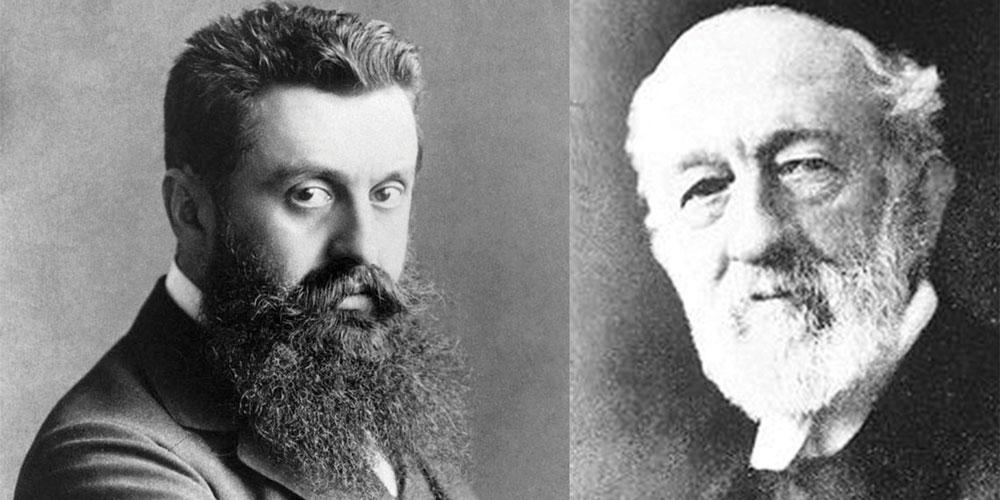
Left: Theodore Herzl, of whom Israel’s Declaration of Independence officially refers to as the spiritual father of the Jewish State.
Right: William Hechler, friend, mentor and legitimizer of Herzl’s vision and calling. He is considered the father of Christian Zionism.
By Shira Sorko-Ram
There is not an Israeli school child anywhere in the world who has not heard of Theodore Herzl—the Father of Modern Israel. But few people—in or out of Israel—have ever heard of William Hechler.
Yet many historians concede if it weren’t for Pastor Hechler, Herzl would probably never have been anything more than an obscure, eccentric, minor Austrian newspaper columnist. This is a story about Theodore Herzl, William Hechler … and yes, divine intervention.
Hechler’s father, an Anglican priest, had a deep admiration and respect for the Jewish people. This love for God’s chosen people profoundly influenced his son. In fact, it consumed him.
Since the Protestant Reformation starting in the early sixteenth century—there had been pockets of Christian lovers of Zion throughout Europe and the United States. This was in spite of the fact the Reformation’s pioneer, Martin Luther, hated the Jewish people.
EARLY CHRISTIAN ZIONISTS
The second U.S. president, John Adams, of Puritan background, wrote with clarity and understanding in 1819, “I sincerely wish to see the Jews settled in Judah, forming an independent nation.”
Protestant Biblical Zionism spread widely across the European continent, as seen in the letter British Lord Shaftesbury sent to Queen Victoria, pleading, “May it be during your reign that, according to the hopes of this unique people now laid before Your Majesty, ‘Judah shall be saved and Israel shall dwell in peace.’ Such is the prayer of the loyal and devoted servant of your Majesty.”
However, promoting the practical return of the Jews to their ancient homeland was for those few brave Christians who dug deeply and regularly into the Word of God. Rev. William Hechler was one of those.
For fifty years, Hechler traversed his world. As an Anglican cleric with both English and German as his mother tongue, he worked in Nigeria, served in the German army, raised a family in Cork, Ireland and became proficient in ten languages. Then in 1873, as often happens, strategic changes took place in his life, though only many years later would he understand their importance.
Anthony Ashley Cooper, Earl of Shaftesbury was an Evangelical Christian, part of the revival of Evangelical faith that swept Britain in the early 19th century. Religious motives prompted him to initiate charity works and further social legislation, including the ten hour day act. At the same time, he was keen for the restoration of the Jews, and their conversion to Christianity.
Lord Shaftesbury was the most active restoration lobbyist. 'The inherent vitality,' he wrote, 'of the Hebrew race reasserts itself with amazing persistence. Its genius, to tell the truth, adapts itself more or less to all the currents of civilization all over the world, nevertheless always emerging with distinctive features and a gallant recovery of vigor."
Shaftesbury told his biographer, Edwin Hodder, that belief in the Second Advent, "has always been a moving principle in my life, for I see everything going on on in the world subordinate to this great even." Privately, he asked, "Why do we not pray for it every time we hear a clock string?" Hodder stated that since the return of the Jews was required for the Second Advent, Shaftesbury "never had a shadow of a doubt that the Jews were to return to their own land...It was his daily prayer, his daily hope. 'Oh pray for the peace of Jerusalem!' were the words engraven on the ring he always wore on his right hand.' (Tuchman, Bible and Sword p 178).
Lord Shaftesbury lobbied for the idea of return of the Jews with Prime Minister Palmerston and his successors in the government and was incidentally instrumental in the considerable assistance and protection against oppression that Britain henceforth extended to the Jews already living in Palestine.
In 1839 the Church of Scotland sent Andrew Bonar and Robert Murray M'Cheyne, to report on "the Condition of the Jews in their land." Their report was widely publicized in Great Britain and it was followed by a "Memorandum to Protestant Monarchs of Europe for the restoration of the Jews to Palestine." This memorandum was printed verbatim in the London Times, including an advertisement by Lord Shaftesbury igniting an enthusiastic campaign by the Times for restoration of the Jews.
In August 1840 the Times reported that the British government was considering Jewish restoration. It added that "a nobleman of the Opposition" (apparently Lord Shaftesbury) was making inquiries to determine:
1. Jewish opinion of the proposed restoration.
2. Jewish readiness to live in Palestine and invest their capital in agriculture.
3. How soon they would be ready to go.
4. Whether they would pay for their own passage, given assurance of safety to life and property.
5. Whether they would be willing to live under the Turkish rule, protected by Britain, France, Russia, Prussia, Austro- Hungary.
Shaftesbury had indeed caused Palmerston, either prior to or following the Times reprot, to write to the British Ambassador in Constantinople:
There exists at the present time among the Jews dispersed over Europe, a strong notion that the time is approaching for their nation to return to Palestine...It would be of manifest importance to the Sultan to encourage the Jews to return and to settle in Palestine because the wealth which they would bring with them would increase the resources of the Sultan's dominions; and the Jewish people, if returning under the sanction and protection and at the invitation of the Sultan, would be a check on any future evil designs of Mehmet Ali or his successors... I have to instruct Your Excellency strongly to recommend to hold out every just encouragement to the Jews of Europe to return to Palestine. (Tuchman, Bible and Sword, 1988 p 175).
Religious motives had been transformed into motives of state, a theme that was to be repeated in coming years.
http://mideastweb.org/britzion.htm
Lord Ashley, Earl of Shaftesbury

Anthony Ashley Cooper, the eldest son of the 6th Earl of Shaftesbury (1768–1851) and Lady Anne Spencer-Churchill (1773–1865), was born on 28th April, 1801. At the age of seven he was sent to boarding school and five years later he was transferred to Harrow (1813-16)At the age of ten, Anthony was given the courtesy title of Lord Ashley.
Harrow School (1813-16) was followed by Christ Church College, where he gained a first-class degree in classics. At the age of twenty-five he was elected as M.P. for Woodstock, a pocket borough under the control of his uncle, the Duke of Marlborough.
"Ashley's growing sense of himself as a lone crusader was undergirded in the course of the 1830s by a deepening of his religious commitment. He had always been a sincere and pious Christian, but his beliefs now assumed an unambiguously evangelical character, sustained in particular by his friendship from 1835 with the leading divine Edward Bickersteth. Ashley became convinced of the imminence of the premillennial second advent of Christ,
I think a man's religion, if it is worth anything, should enter into every sphere of life, and rule his conduct in every relation. I have always been - and, please God, always shall be, an Evangelical."
Anthony Ashley Cooper, 7th Earl of Shaftesbury, died on 1st October, 1885.
https://spartacus-educational.com/IRashley.htm
https://howlingpixel.com/i-en/Alexander_Keith_(minister)
.
BALFOUR ISREAL HOW IT WENT DOWN
WWI Document Archive > Official Papers https://web.archive.org/web/20190725103114/https://wwi.lib.byu.edu/index.php/British_Imperial_Connexions_to_the_Arab_National_Movement
Appendix III
I.
Preliminaries. Lord John Russell's refusal to favour independence of the Caliph (1860).
First stirrings of Arab Secret Societies (1865-1880).
II.Arab Secret Societies. From the Young Turk Revolution to 1912.
French Comments.
Syrian delegation to Lord Kitchener, 1912.
III.Arab Syrian Congress in Paris and Franco-Syrian Committee in Paris, June, 1913.
IV.Lord Kitchener's conversation with Emir Abdullah, February 1914, and its aftermath.
(A) Lord Kitchener's account and views of Sir Louis Mallet.
(B) Emir Abdullah s account of his conversation with Lord Kitchener, transmitted with notes by Mr. G. Antonius.
V.Aziz Bey and the Arab Movement, 1914.
I.The origins of the Arab National Movement.((( please see link below for full details in 300 + dispatches )))
Sykes-Picot Agreement
1. Sir Edward Grey to Paul Cambon, 15 May 1916
I shall have the honour to reply fully in a further note to your Excellency's note of the 9th instant, relative to the creation of an Arab State, but I should meanwhile be grateful if your Excellency could assure me that in those regions which, under the conditions recorded in that communication, become entirely French, or in which French interests are recognised as predominant, any existing British concessions, rights of navigation or development, and the rights and privileges of any British religious, scholastic, or medical institutions will be maintained.
His Majesty's Government are, of course, ready to give a reciprocal
assurance in regard to the British area.
2. Sir Edward Grey to Paul Cambon, 16 May 1916
I have the honour to acknowledge the receipt of your Excellency's note of the 9th instant, stating that the French Government accept the limits of a future Arab State, or Confederation of States, and of those parts of Syria where French interests predominate, together with certain conditions attached thereto, such as they result from recent discussions in London and Petrograd on the subject.
I have the honour to inform your Excellency in reply that the acceptance of the whole project, as it now stands, will involve the abdication of considerable British interests, but, since His Majesty's Government recognise the advantage to the general cause of the Allies entailed in producing a more favourable internal political situation in Turkey, they are ready to accept the arrangement now arrived at, provided that the co-operation of the Arabs is secured, and that the Arabs fulfil the conditions and obtain the towns of Homs, Hama, Damascus, and Aleppo.
It is accordingly understood between the French and British Governments---
1. That France and Great Britain are prepared to recognize and protect an independent Arab State or a Confederation of Arab States in the areas (A) and (B) marked on the annexed map, under the suzerainty of an Arab chief. That in area (A) France, and in area (B) Great Britain, shall have priority of right of enterprise and local loans. That in area (A) France, and in area (B) Great Britain, shall alone supply advisers or foreign functionaries at the request of the Arab State or Confederation of Arab States.
2. That in the blue area France, and in the red area Great Britain, shall be allowed to establish such direct or indirect administration or control as they desire and as they may think fit to arrange with the Arab State or Confederation of Arab States. 3. That in the brown area there shall be established an international administration, the form of which is to be decided upon after consultation with Russia, and subsequently in consultation with the other Allies, and the representatives of the Shereef of Mecca.
4. That Great Britain be accorded (1) the ports of Haifa and Acre, (2) guarantee of a given supply of water from the Tigris and Euphrates in area (A) for area (B). His Majesty's Government, on their part, undertake that they will at no time enter into negotiations for the cession of Cyprus to any third Power without the previous consent of the French Government.
5. That Alexandretta shall be a free port as regards the trade of the British Empire, and that there shall be no discrimination in port charges or facilities as regards British shipping and British goods; that there shall be freedom of transit for British goods through Alexandretta and by railway through the blue area, whether those goods are intended for or originate in the red area, or (B) area, or area (A); and there shall be no discrimination, direct or indirect against British goods on any railway or against British goods or ships at any port serving the areas mentioned.
That Haifa shall be a free port as regards the trade of France, her dominions and protectorates, and there shall be no discrimination in port charges or facilities as regards French shipping and French goods. There shall be freedom of transit for French goods through Haifa and by the British railway through the brown area, whether those goods are intended for or originate in the blue area, area (A), or area (B), and there shall be no discrimination, direct or indirect, against French goods on any railway, or against French goods or ships at any port serving the areas mentioned.
6. That in area (A) the Baghdad Railway shall not be extended southwards beyond Mosul, and in area (B) northwards beyond Samarra, until a railway connecting Baghdad with Aleppo via the Euphrates Valley has been completed, and then only with the concurrence of the two Governments.
7. That Great Britain has the right to build, administer, and be sole owner of a railway connecting Haifa with area (B), and shall have a perpetual right to transport troops along such a line at all times.
It is to be understood by both Governments that this railway is to facilitate the connexion of Baghdad with Haifa by rail, and it is further understood that, if the engineering difficulties and expense entailed by keeping this connecting line in the brown area only make the project unfeasible, that the French Government shall be prepared to consider that the line in question may also traverse the polygon Banias-Keis Marib-Salkhab Tell Otsda-Mesmie before reaching area (B).
8. For a period of twenty years the existing Turkish customs tariff shall remain in force throughout the whole of the blue and red areas, as well as in areas (A) and (B), and no increase in the rates of duty or conversion from ad valorem to specific rates shall be made except by agreement between the two Powers.
There shall be no interior customs barriers between any of the above-mentioned areas. The customs duties leviable on goods destined for the interior shall be collected at the port of entry and handed over to the administration of the area of destination.
9. It shall be agreed that the French Government will at no time enter into any negotiations for the cession of their rights and will not cede such rights in the blue area to any third Power, except the Arab State or Confederation of Arab States without the previous agreement of His Majesty's Government, who, on their part, will give a similar undertaking to the French Government regarding the red area.
10. The British and French Governments, as the protectors of the Arab State, shall agree that they will not themselves acquire and will not consent to a third Power acquiring territorial possessions in the Arabian peninsula, nor consent to a third Power installing a naval base either on the east coast, or on the islands, of the Red Sea. This, however, shall not prevent such adjustment of the Aden frontier as may be necessary in consequence of recent Turkish aggression.
11. The negotiations with the Arabs as to the boundaries of the Arab State or Confederation of Arab States shall be continued through the same channel as heretofore on behalf of the two Powers.
12. It is agreed that measures to control the importation of arms into the Arab territories will be considered by the two Governments.
I have further the honour to state that, in order to make the agreement complete, His Majesty's Government are proposing to the Russian Government to exchange notes analogous to those exchanged by the latter and your Excellency's Government on the 26th April last. Copies of these notes will be communicated to your Excellency as soon as exchanged.
I would also venture to remind your Excellency that the conclusion of the present agreement raises, for practical consideration, the question of the claims of Italy to a share in any partition or rearrangement of Turkey in Asia, as formulated in article 9 of the agreement of the 26th April, 1915, between Italy and the Allies.
His Majesty's Government further consider that the Japanese Government should be informed of the arrangement now concluded.
War cabinet minutes leading to the Balfour Declaration, 1917
On November 9th 1917 the Times published the minutes of the 4 War Cabinet meetings where, what became known as the Balfour Declaration, was discussed. They had before them the document produced by the Zionist Organisation on July 18th 1917 and other correspondence.
Official Zionist Formula, 18 July 1917
H. M. Government, after considering the aims of the Zionist Organisation, accepts the principle of recognising Palestine as the National Home of the Jewish people and the right of the Jewish people to build up its National life in Palestine under a protection to be established at the conclusion of Peace, following upon the successful issue of the war.
H. M. Government regards as essential for the realisation of this principle the grant of internal autonomy to the Jewish nationality in Palestine, freedom of immigration for Jews, and the establishment of a Jewish National Colonising Corporation for the re-settlement and economic development of the country.
The conditions and forms of the internal autonomy and a charter for the Jewish National Colonising Corporation should, in the view of H. M. Government, be elaborated in detail and determined with the representatives of the Zionist Organisation.
Minutes of War Cabinet Meeting No. 227, Minute No. 2, 3 September 1917
The War Cabinet had under consideration correspondence which had passed between the Secretary of State for Foreign Affairs and Lord Rothschild on the question of the policy to be adopted towards the Zionist movement. In addition to the draft declaration of policy included in the above correspondence, they had before them an alternative draft prepared by Lord Milner. They had also before them a Memorandum by Mr. Montagu entitled “The Anti-Semitism of the present Government.”
It was suggested that a question raising such important issues as to the future of Palestine ought, in the first instance, to be discussed with our Allies, and more particularly with the United States.
On the question of submitting Lord Milner’s draft for the consideration of the United States Government, Mr. Montagu urged that the use of the phrase “the home of the Jewish people” would vitally prejudice the position of every Jew elsewhere and expand the argument contained in his Memorandum. Against this it was urged that the existence of a Jewish State or autonomous community in Palestine would strengthen rather than weaken the situation of Jews in countries where they were not yet in possession of equal rights, and that in countries like England, where they possessed such rights and were identified with the nation of which they were citizens, their position would be unaffected by the existence of a national Jewish community elsewhere. The view was expressed that, while a small influential section of English Jews were opposed to the idea, large numbers were sympathetic to it, but in the interests of Jews who wished to go from countries where they were less favourably situated, rather than from any idea of wishing to go to Palestine themselves.
With reference to a suggestion that the matter might be postponed, the Acting Secretary of State for Foreign Affairs pointed out that this was a question on which the Foreign Office had been very strongly pressed for a long time past. There was a very strong and enthusiastic organisation, more particularly in the United States, who were zealous in this matter, and his belief was that it would be of most substantial assistance to the Allies to have the earnestness and enthusiasm of these people enlisted on our side. To do nothing was to risk a direct breach with them, and it was necessary to face this situation.
The War Cabinet decided that–
The views of President Wilson should be obtained before any declaration was made, and requested the Acting Secretary of State for Foreign Affairs to inform the Government of the United States that His Majesty’s Government were being pressed to make a declaration in sympathy with the Zionist movement, and to ascertain their views as to the advisability of such a declaration being made.
Minutes of War Cabinet Meeting No. 245, Minute No. 18, 4 October 1917
With reference to War Cabinet 227, Minute 2, the Secretary of State for Foreign Affairs stated that the German Government were making great efforts to capture the sympathy of the Zionist Movement. This Movement, though opposed by a number of wealthy Jews in this country, had behind it the support of a majority of Jews, at all events in Russia and America, and possibly in other countries. He saw nothing inconsistent between the establishment of a Jewish national focus in Palestine and the complete assimilation and absorption of Jews into the nationality of other countries. Just as English emigrants to the United States became, either in the first or subsequent generations, American nationals, so, in future, should a Jewish citizenship be established in Palestine, would Jews become either Englishmen, Americans, Germans, or Palestinians. What was at the back of the Zionist Movement was the intense national consciousness held by certain members of the Jewish race. They regarded themselves as one of the great historic races of the world, whose original home was Palestine, and these Jews had a passionate longing to regain once more this ancient national home, Other Jews had become absorbed into the nations among whom they and their forefathers had dwelt for many generations. Mr. Balfour then read a very sympathetic declaration by the French Government which had been conveyed to the Zionists, and he stated that he knew that President Wilson was extremely favourable to the Movement.
Attention was drawn to the contradictory telegrams received from Colonel House and Justice Brandeis.
The Secretary was instructed to take the necessary action.
The War Cabinet further decided that the opinions received upon this draft declaration should be collated and submitted to them for decision.
Minutes of War Cabinet Meeting No. 259, Minute No. 12, 25 October 1917
With reference to War Cabinet 245, Minute 18, the Secretary mentioned that he was being pressed by the Foreign Office to bring forward the question of Zionism, an early settlement of which was regarded as of great importance.
Lord Curzon stated that he had a Memorandum on the subject in course of preparation.
The question was adjourned until Monday, 29th October, or some other day early next week.
Minutes of War Cabinet Meeting No. 261, Minute No. 12, 31 October 1917
With reference to War Cabinet 245, Minute 18, the War Cabinet had before them a note by the Secretary, and also a memorandum by Lord Curzon on the subject of the Zionist movement.
The Secretary of State for Foreign Affairs stated that he gathered that everyone was now agreed that, from a purely diplomatic and political point of view, it was desirable that some declaration favourable to the aspirations of the Jewish nationalists should now be made. The vast majority of Jews in Russia and America, as, indeed, all over the world, now appeared to be favourable to Zionism. If we could make a declaration favourable to such an ideal, we should be able to carry on extremely useful propaganda both in Russia and America. He gathered that the main arguments still put forward against Zionism were twofold:
(a.)That Palestine was inadequate to form a home for either the Jewish or any other people.
(b.)The difficulty felt with regard to the future position of Jews in Western countries.
With regard to the first, he understood that there were considerable differences of opinion among experts regarding the possibility of the settlement of any large population in Palestine, but he was informed that, if Palestine were scientifically developed, a very much larger population could be sustained than had existed during the period of Turkish misrule. As to the meaning of the words ‘national home,’ to which the Zionists attach so much importance, he understood it to mean some form of British, American, or other protectorate, under which full facilities would be given to the Jews to work out their own salvation and to build up, by means of education, agriculture, and industry, a real centre of national culture and focus of national life. It did not necessarily involve the early establishment of an independent Jewish State, which was a matter for gradual development in accordance with the ordinary laws of political evolution.
With regard to the second point, he felt that, so far from Zionism hindering the process of assimilation in Western countries, the truer parallel was to be found in the position of an Englishman who leaves his country to establish a permanent home in the United States. In the latter case there was no difficulty in the Englishman or his children becoming full nationals of the United States, whereas, in the present position of Jewry, the assimilation was often felt to be incomplete, and any danger of a double allegiance or non-national outlook would be eliminated.
Lord Curzon stated that he admitted the force of the diplomatic arguments in favour of expressing sympathy, and agreed that the bulk of the Jews held Zionist rather than anti-Zionist opinions. He added that he did not agree with the attitude taken up by Mr. Montagu. On the other hand, he could not share the optimistic views held regarding the future of Palestine. These views were not merely the result of his own personal experiences of travel in that country, but of careful investigations from persons who had lived for many years in the country. He feared that by the suggested declaration we should be raising false expectations which could never be realised. He attached great importance to the necessity of retaining the Christian and Moslem Holy Places in Jerusalem and Bethlehem, and, if this were to be effectively done, he did not see how the Jewish people could have a political capital in Palestine. However, he recognised that some expression of sympathy with Jewish aspirations would be a valuable adjunct to our propaganda, though he thought that we should be guarded in the language used in giving expression to such sympathy….
Credits: “The Balfour Declaration,” Times (London), 9 November 1917, p. 1.
https://www.rothschildarchive.org/materials/nathan_and_waterloo.pdf
https://www.alamy.com/stock-photo-the-rothschilds-1940-122549308.html
http://www.balfourproject.org/the-sykes-picot-agreement/
https://www.britannica.com/place/Ottoman-Empire
https://wwi.lib.byu.edu/index.php/Sykes-Picot_Agreement
https://web.archive.org/web/20190724184326/http://www.balfourproject.org/the-sykes-picot-agreement/
https://web.archive.org/web/20190724184025/https://wwi.lib.byu.edu/index.php/The_Palestine_Mandate
https://web.archive.org/web/20190724183430/https://wwi.lib.byu.edu/index.php/Sykes-Picot_Agreement/
let us know when u stop repeating swiss nazi propaganda and want too ACTUALY FIGHT BACK
lulzsec.org investigatons intellegnce
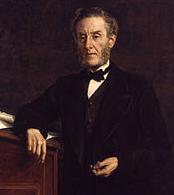
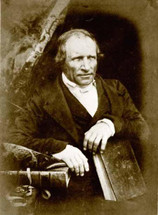
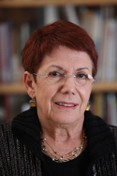
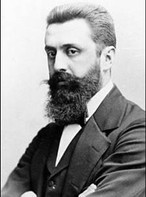
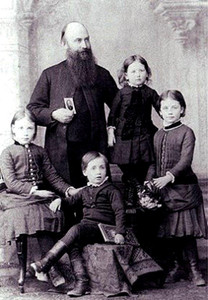
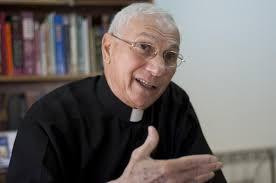
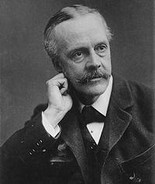
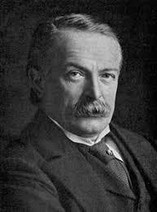
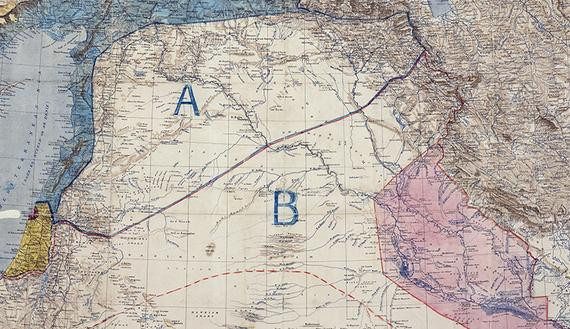
Comments
Post a Comment